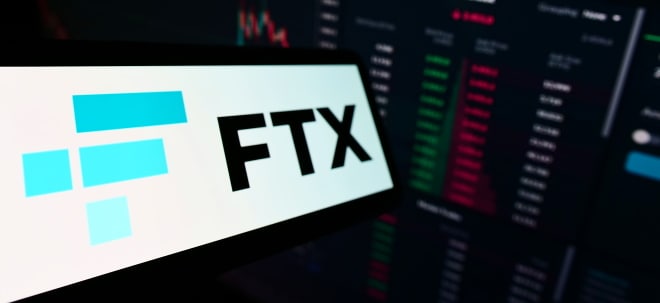Comment by the Management of AUGA group, AB on the Initiation of Restructuring
Werte in diesem Artikel
AUGA group, the producer of more sustainable organic food and developer of agricultural technology, by decision of its Board is convening a general shareholders' meeting to initiate restructuring of the parent company AUGA group, AB (hereinafter – the Company). The goal is to ensure continuity of operations, the long-term solvency of the group of companies and fulfilment of commitments to creditors. To achieve this goal, AUGA group and its subsidiaries (hereinafter – the Group) is postponing its technology development plans indefinitely and giving all its attention to activities that generate cash flow, namely, agriculture, biomethane production, and the supply of consumer end products.
"We have dedicated time and energy to seeking agreements with financial institutions regarding the deferral of long-term loans and the sale of some assets to avoid having to enter restructuring. As of today, though, we do not have a common agreement and achieving these goals requires additional time. So, to fulfil the obligations that we have and to protect our creditors, employees, suppliers, and other stakeholders, we are starting those proceedings. If the some subsidiaries of AUGA group, AB fail to reach a solution with creditors, they may also need to undertake a restructuring process," says Kestutis Jušcius, Chair of the Board of the AUGA group, AB.
Over the past five years, the Group has faced challenges. One was rapidly rising production costs not offset by products’ selling prices. A variety of factors were behind the increase in production costs in 2018–2023 – from fast growing prices for agricultural services, to a €9 million jump in salary costs due to Inflation even though the number of employees was unchanged. Salaries for production employees grew 63%, from €11.7 million to €19.1 million, while those of administrative employees rose 35%, from €4.2 million to €5.7 million.
"Rising costs reduced the Group's ability to compete in other EU markets where its products are sold. The situation was further complicated by Lithuania's system for subsidizing organic production at that time, which provided 30% smaller subsidies to farms of over 200 hectares. Due to the scale of its operations, in the time of its involvement in organic production, the Group has missed out on €11.8 million in subsidies meant to compensate for crop revenue even though it has operated in compliance with all organic farming requirements, just like other organic farmers," Jušcius says.
He notes that to bring costs under control, the Group had to invest significantly more than before in efficiency initiatives, but these efforts competed with strategic sustainability and innovation projects. Meanwhile, increased interest rates and the resulting higher debt servicing costs have further reduced the ability to invest in operational efficiency measures.
To stabilize the situation, the Group has made difficult decisions; however, their positive impact on Group’s performance will contribute only in the medium to long term.
"We implemented cost-saving initiatives, particularly in the mushroom growing segment. We performed land consolidation and efficiency assessments and decided to cease work on unproductive land. We also made the significant decision – to partially shift from organic to conventional production in both crop growing and dairy. The Group will continue to operate both the organic and conventional agricultural models. Although this led to higher additional costs during the transitional period, in the new season it will allow us to diversify risks and reduce the income volatility, which we experienced while focusing entirely on organic farming," Kestutis Jušcius says.
In addition, financial results have been impacted by increasingly significant crop yield losses each year due to intensifying climate change. Volatility in organic harvests and a decline in product consumption, which led to a narrowing price gap between organic and conventional products, created a negative business climate, as did global crises such as the Covid-19 pandemic and related supply chain disruptions as well as the war in Ukraine.
"These crises initially triggered supply chain disruptions, leading to increased prices for raw materials, fertilizers, fuel, and equipment. Later, energy prices surged, significantly affecting agricultural activities. Although we undertook numerous cost-saving initiatives, including a partial shift from organic to conventional production, these and other measures proved insufficient to cover losses and meet obligations in the short term," the Chair of AUGA group’s, AB Board says.
Optimization and efficiency goals
To achieve greater efficiency and lower costs, the Group plans to continue to optimize various areas of operations, including all production and administrative processes, as well as land management.
The main focus in the new business phase is on activities that generate positive financial flows and provides quick positive results where the Group has long-standing experience and a strong production base, namely crop growing, dairy, mushroom growing, and FMCG.
The Group will also continue its biomethane production activities, which will not only generate positive cash flows from the sale of the final product but will also provide financial benefits through a by-product, digestate, the use of which in crop production can improve yields on organic farms by 30%.
" We're focusing all our capabilities on facilitating an orderly restructuring process. We are evaluating the performance of each company separately, continuing to review farming efficiency, and simplifying the management structure to shorten the decision-making chain and reduce its costs. We will also be strengthening our team with experienced change management experts. And leading up to and throughout the restructuring, we will make every effort to meet our commitments to employees promptly and appropriately.
Our immediate objective is to stabilize operations and ensure business continuity. To ensure a successful and expedited restructuring, additional capital will be sought, including the potential involvement of strategic investors or the sale of some of the Group's companies that manage assets," he says.
Emission-reducing technologies ahead of their time
Since 2018, the Group has been developing emission-reducing technologies which as of today have been patented and validated by external teams of scientists and have demonstrated their potential to significantly reduce CO2 emissions under production conditions. However, the global sustainability goals, which were a top priority as recently as 2019 and on which the Group based its business strategy, have become secondary following the Covid-19 pandemic, the war in Ukraine and the energy crisis.
"In this period, we invested €6 million in hybrid and electric tractors and sustainable feed technologies. The technologies we developed aimed not only to address sustainability issues in agriculture but also to boost the efficiency of production processes on Group farms. Without external financial support, however, the funds we invested were insufficient to commercialize these technologies and generate returns in terms of efficiency already today. They were meant to ensure both efficiency and sustainability over the long term, fully replacing the technologies that are currently used with those developed by AUGA.
That €6 million is just a small part of the Group’s total portfolio of commitments and is not the main reason for the company's financial difficulties today. But the desire to change and to bring positive change to agriculture demanded a lot of strategic time and attention from management. We believed that sustainable technologies would be met with adequate support, but that did not happen. Therefore, we are postponing our efforts to develop sustainable technologies until we secure external funding for that," explained Jušcius.
He notes that from a practical perspective sustainability will remain a core mission for the Group, which will continue to use sustainable production practices across all its operations. Although the Group is indefinitely halting its work on technological innovations for agriculture, he is confident that the situation will change.
"To feed 10 billion people by 2050 and simultaneously reduce emissions from the food chain by 67%, we will need to change agricultural practices. We will undoubtedly return to the AUGA technologies when the market is ready, when regulatory measures are in place to encourage the adoption of sustainable alternatives, and when our Group has achieved financial stability," the Chair of the Board of AUGA group, AB notes.
Next steps
By decision of the Companies’ Board, an extraordinary general meeting of shareholders is being convoked on 4 December 2024. Matters on the agenda include the initiation of restructuring proceedings and approval of a preliminary draft of the restructuring plan.
If shareholders vote in favour of initiating the restructuring process, the company will request court approval to begin that process. Once there is a court decision to commence a restructuring case for the Company, the restructuring plan will be negotiated with creditors. It is anticipated that both the Companies’ creditors and the shareholders of the Company will approve the restructuring plan in the second quarter of 2025.
Both until and after approval of the restructuring plan, the Company and its subsidiaries will continue their current operations in crop growing, dairy, mushroom growing, and FMCG supply.

Ausgewählte Hebelprodukte auf AUGA group Registered
Mit Knock-outs können spekulative Anleger überproportional an Kursbewegungen partizipieren. Wählen Sie einfach den gewünschten Hebel und wir zeigen Ihnen passende Open-End Produkte auf AUGA group Registered
Der Hebel muss zwischen 2 und 20 liegen
| Name | Hebel | KO | Emittent |
|---|
| Name | Hebel | KO | Emittent |
|---|
Nachrichten zu AUGA group AB Registered Shs
Analysen zu AUGA group AB Registered Shs
Keine Analysen gefunden.

